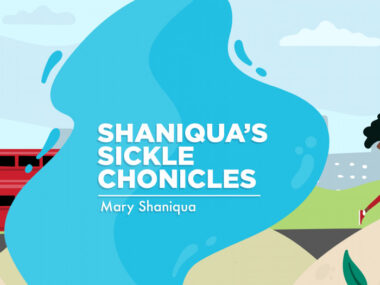Sickle Cell Trait Not Associated with Increased Stroke Risk, Study Suggests
Written by |

Sickle cell trait (SCT) is not associated with an increased incidence of stroke, a study in African-American patients suggests.
The study, “Association of Sickle Cell Trait With Ischemic Stroke Among African Americans: A Meta-analysis,” was published in the journal JAMA Neurology.
Sickle cell trait occurs in people who have a defect in one of two copies of the HBB gene. Sickle cell anemia is caused by defects in both copies of the gene.
Sickle cell anemia affects 1 out of 312 African-Americans, and is associated with a variety of complications, including stroke. Stroke is the fifth leading cause of death in the U.S., and occurs more often and at a younger age in African-Americans than in white non-Hispanic individuals.
Sickle cell trait occurs in 8 percent of African-Americans, and while it does not cause sickle cell anemia, it is associated with increased incidences of venous thromboembolism (blood clots that start in veins) and pulmonary embolism (blockage of an artery in the lungs), both of which can lead to ischemic stroke. Previous studies have suggested that people with sickle cell trait may be predisposed to ischemic strokes, but a clear association between the two is still a matter of debate among researchers.
In this study, researchers set out to determine more definitive data on whether sickle cell trait is associated with a higher risk of stroke in African-Americans.
They pooled the results of four studies on the risk factors for heart disease in various race/ethnicity groups in the U.S., including the Multi-Ethnic Study of Atherosclerosis (MESA), the Jackson Heart Study (JHS), the Women’s Health Initiative (WHI), and the Reasons for Geographic and Racial Differences in Stroke (REGARDS).
The analysis included data from 19,464 African-Americans, 1,520 with sickle cell trait and 17,944 without. Ischemic stroke had occurred in 620 subjects. There were 5,257 (27%) men included, and the average age was 60 years.
In people with sickle cell trait, the incidence of stroke was 2.9 per 1,000, and 3.2 per 1,000 in those without the trait, indicating that sickle cell trait was not associated with stroke.
However, the study’s authors point out that they did not examine the incidence of different types of stroke in people with sickle cell trait, and that further studies are needed to determine whether sickle cell trait is associated with any specific kind of stroke.
They emphasized that “the results of this study suggest performing a more thorough clinical evaluation of a stroke patient with SCT” and not to assume that SCT is the cause of the stroke.
“In this meta-analysis, we did not observe an association between SCT and an increased risk of stroke in African Americans. Future studies with large numbers of African Americans, longer follow-up, and carefully subtyped ischemic stroke events are needed to further elucidate the possible association of SCT with incident ischemic stroke overall and by specific ischemic stroke subtypes,” they concluded.





